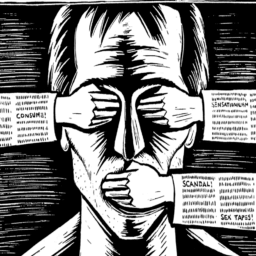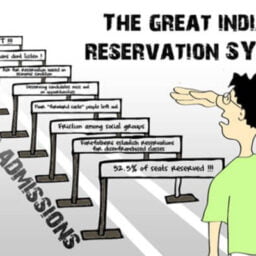Introduction
Professor Manoj Kumar Jha, a Rajya Sabha member from Bihar, gave a resounding speech in parliament during the pandemic situation. He pointed out that the denigrated state of health in India is a collective failure of the governments from 1947 till date.[1] In the same speech, he pitched the idea of a constitutional amendment to make the right to health a constitutional fundamental right. Around the same time Nobel laureate, Kailash Satyarthi wrote to the members of parliament regarding the same, which resulted in bipartisan support. The idea of granting constitutional status to the right to health is getting popular.
Label of constitutionality is not mere tokenism, rather it shows the value behind a particular right of a person, making it the supreme duty of the state to protect such right. Safeguarding of such rights is not prone to any excuse, prejudice or discrimination on the part of the state; people are also in their full rights to knock the doors of the judiciary in case of non-compliance on the part of the government.
The World has recently experienced the biggest health crisis of the century, and India was among those nations who suffered the most. At this stage, it becomes important to discuss the current status of the right to health in India and how granting constitutional status to the right to health can help our nation in overcoming the dilapidated position of the healthcare system and countering the potential healthcare threats.
Right to Health and The Constitution
The Constitution of India has many provisions on health. It was the foresight of our founding fathers of the constitution, who wanted India to be a welfare state in all the realms, including health, hence, they inserted certain provisions regarding the same. In the Directive Principles of State Policy, enshrined in Chapter IV of the Indian Constitution, they included the following Articles intending it to become a guiding light for future policies.
- Article 38 establishes the responsibility of the state to secure social order by promoting the welfare of public health
- Article 39 clause (e) relates to the protection of health and strength of workers
- Article 41 pertains to providing public assistance in case of sickness, disability, old age etc.
- Article 42 relates to the protection of the health of mother and infant.
- Article 47 imposes a duty on the state to raise the nutritional level and standard of living of the citizens to improve public health.
Though DPSP is not justiciable i.e. they are not enforceable in the court of law, but they do hold a persuasive value and hence can work as a beacon for the government in amending the constitution for giving constitutional status to the right to health. Moreover, other than DPSP, there are a few more provisions in the Constitution in the 11th and 12th schedules, laying down the duty of Municipalities and Panchayats regarding healthcare and sanitation, including primary healthcare centres.
Judicial Interpretation
The Hon’ble Supreme Court has done a commendable job in interpreting the constitution broadly and liberally, taking into account the changing conditions and purposes. The Supreme Court has widened the scope of Article 21, which ensures the right to life and personal liberty, and has brought the right to health under the ambit of fundamental rights by giving judgements in various cases. It was observed by the court that Article 21 when read in tandem with the DPSP, helps understand the real meaning of the state’s duty concerning health. By such a liberal interpretation, the hon’ble court has prevented the government from waiving off its responsibilities in various instances.
In Francis Coralie Mullin vs The Administrator, Union Territory of Delhi, the Supreme Court reiterated that “the right to life enshrined in Article 21 cannot be restricted to mere animal existence. It means something much more than just physical survival.”[2]
In the case of Bandhua Mukti Morcha v. Union of India[3], the Supreme Court noted that albeit DPSP only hold a persuasive value, they should be duly implemented by the Government. Moreover, the ambit of Article 21 was widened in this case as the court held that dignity and health fall under the ambit of life and liberty. Thus, making the right to health a fundamental right through judicial interpretation.
The scope of Article 21 was further widened in the case of Paschim Banga Khet Mazdoor Samity v. State of West Bengal[4]. The court ruled that the government must provide proper medical care to everyone and to work for the general welfare of the people.
In the case of the State of Punjab and Ors. V. Ram Lubhaya Bagga and Ors.[5] The court observed that the right of one correlates with the duty of another. As a result, the right conferred by Article 21 imposes a comparable obligation on the state, which is strengthened by Article 47 as mentioned above. It must be noted that in the same case the hon’ble court regarded the right to health as sacred, sacrosanct and valuable.
In the Ratlam Municipal Corporation case[6] The court highlighted that under Article 47, it is the primary duty of the state to ensure that the living conditions of the people are healthy; the court noted that this duty can be enforced against any government body or authority who defaults in doing so, not taking into consideration the financial resources it has.
In Parmanand Katara v. Union Of India,[7] the court held that every doctor at a government hospital or otherwise has a professional obligation to extend his service with due expertise for protecting the life of a patient. This obligation is paramount and absolute and no law or State order can intervene to delay the discharge of this obligation.
From the above-mentioned precedents, it can be concluded that the right to health is a part and parcel of the right to life, hence it is a fundamental right. But it must be noted that the right to health is not granted by a constitutional provision rather than by judicial interpretations.
Why Amend the Constitution?
This question can be raised by many, that if the right to health is already a fundamental right by judicial interpretation, what difference would be created by bestowing its constitutionality. Here it must be noted that the judicial interpretation has its limitations and hence in issues of national welfare, codified legislation via constitutional amendment is needed. An analogy can be drawn with the case of the right to education. The Supreme Court in Mohini Jain v. State of Karnataka [8] noted “The right to education flows directly from right to life. The right to life under Article 21 and the dignity of an individual cannot be assured unless it is accompanied by the right to education.” Thus, making the right to education a fundamental right in 1992. But it wasn’t until 2002, when the constitution was amended (eighty-sixth amendment) to add Article 21A, making the right to education a constitutional fundamental right.
The changes that were brought to our education system, after the amendment, are very visible. The expenditure on education, both in the public and private sector, increased exorbitantly after it got constitutional status[9] As a result, among other things, various positive changes like increment in enrollment ratio, literacy rate, better-equipped institutions etc can be observed. All that was possible because granting constitutionality strengthens the institution as a whole. The same can be expected in the case of the right to health.
Moreover, the national think tank, NITI Ayog, in its 2019 Health Index report[10], highlighted the unequal distribution of public health services. Restricted technical expertise and fiscal constraints were cited as the main reasons. A Constitutional amendment would help in tackling such issues (this would be discussed in the following section). Around the same time, a High-Level Group on health sector constituted under the 15th Finance Commission in 2019, recommended that the right to health be declared a fundamental right under the constitution.[11]
Problems and their Solutions
The current state of health in India is plagued with a lot of problems, and the pandemic has even widened the cracks in the system. Due to an unequal distribution of resources and fragmented investments in health for decades, healthcare has become a luxury for some sections of society. Social and economical minorities including women, children, the elderly and differently-abled bear the most burnt. In that way, access to healthcare goes against the right to equality, enshrined in Article 15 of the constitution, which upholds non-discrimination.
The constitutional right to health will play a critical role in paving out the way for such strategic policies that will keep a check on investments and funds, better training and research of the personals involved and halt the discrimination by providing equity in reach of healthcare.
The idea of universal access to healthcare cannot be transpired into reality until and unless accountability is codified in the constitution. Such accountability will help in better implementation of various existing and future policies. The ambitious Ayushman Bharat scheme, the world’s largest health assurance scheme, will get a boost too. The right to health will give the system much-needed transparency and inclusivity, along with empowerment to doctors and healthcare workers. In the words of Mr Kailash Satyarthi, “fundamental right to health will give a spine to the entire ecosystem”.
If implemented, it will cut down the out of pocket costs of the patient. A greater reach of medical aid would be available, and the neediest would be able to benefit from it. Similarly, overall development in the health sector would result in better outcomes in the productivity of the nation. Health indicators such as infant mortality, expected life at birth, hunger rate, child wasting, child stunting etc. are among the most crucial in determining the state of health in a country, India’s performance has never been up to the mark. Achieving these goals would require a robust investment in the health sector, strong implementation of policies and awareness among people, and a constitutional fundamental right to health will suffice all such needs.
Conclusion
The World Health Organization has declared health to be a fundamental human right. The member states have agreed that the enjoyment of the greatest and most achievable quality of health is a basic and fundamental right of every human being, regardless of religion, race, caste, sex, creed, political belief, social or economic position. As a result, health is a fundamental right of all people, and everyone must have access to the necessary services as and when they are required.
Pandemic has shown a mirror to our health system and loopholes are visible. Health being one of the most crucial obligations of the state, cannot be left un-codified and must be given a place in the constitution under the right to life. India can no longer rely on ad-hoc policies made for the healthcare system. History must not repeat itself, we have to be prepared for the potential health threats to the nation. For the present generation and posterity as well, the constitutional right to health is a must.
Author(s) Name: Vinayak Tiwari (Maharashtra National Law University Aurangabad)
References:
[1]Rajya Sabha, Uncorrected Verbatim Debates, Session No. 254, Date-11/08/2021, page 74/274
[2] Francis Coralie Mullin vs The Administrator, Union Territory of Delhi 1981 AIR 746, 1981 SCR (2) 516 [5]
[3] Bandhua Mukti Morcha v. Union of India 1984 AIR 802, 1984 SCR (2) 67
[4] Paschim Banga Khet Mazdoor Samity v. State of West Bengal 1996 SCC (4) 37, JT 1996 (6) 43
[5] State Of Punjab & Ors vs Ram Lubhaya Bagga Etc (1998) 4 SCC 117. 8.
[6]Municipal Council, Ratlam vs Shri Vardhichand & Ors 1980 AIR 1622, 1981 SCR (1) 97
[7] Parmanand Katara v. Union Of India 1989 AIR 2039, 1989 SCR (3) 997
[8] Miss Mohini Jain vs State Of Karnataka And Ors 1992 AIR 1858, 1992 SCR (3) 658
[9]ICSSR, Ministry of Education, CESS-RESPPG Research Brief, Private and Public Expenditure on Education in India, September 2020
[10]Niti Ayog Health Index Report June 2019
[11]15th Finance Commission of India, 15th Finance Commission of India, Report of High Level Group On Health Sector 2019
















